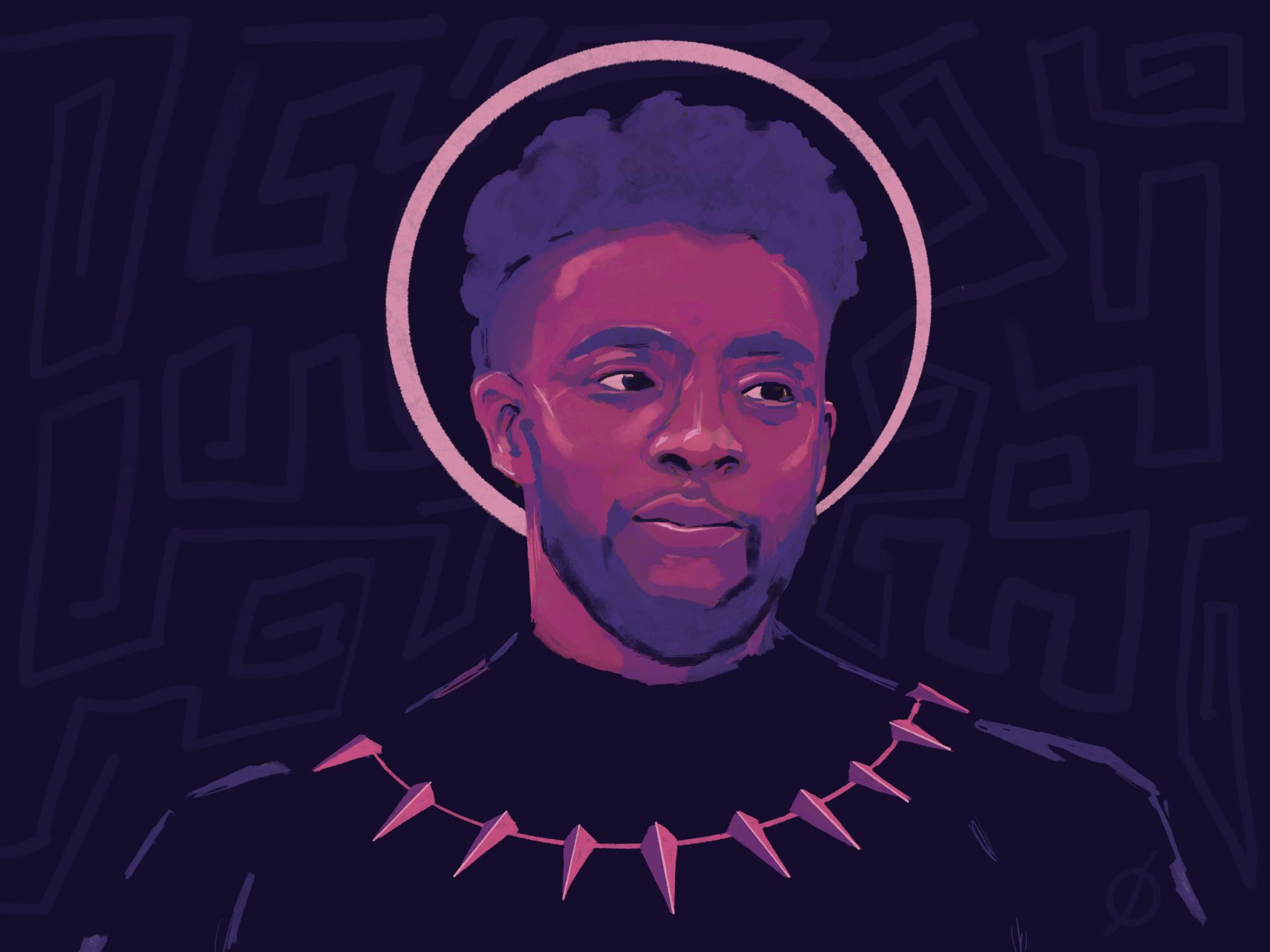For Boseman, his purpose ascended beyond just acting.
As the distinguished voices of many, like former President Barack Obama and music icon Stevie Wonder, poured out their love onto social media after learning about Boseman’s passing last Friday, it was one of Boseman’s co-stars who summed up his work perfectly.
Actor Robert Downey Jr. tweeted Saturday, “Mr. Boseman leveled the playing field while fighting for his life… That’s heroism. I’ll remember the good times, the laughter, and the way he changed the game… #chadwickforever.”
And simply put, Boseman did just that: he changed the game.
In a comic world influenced by the portrayal of white characters, Boseman challenged the narrative by playing the first ever African superhero, Black Panther.
MSU senior Natalie Kagole said Boseman offered her hope that diversity was beginning to consume more leading roles, which allowed her to see more of herself in those roles.
“As an African, you see a lot of Marvel studio movies, and you have all these heroes that you fantasize about, but you never see yourself,” she said. “Chadwick did that for us. For every single little African boy and little African girl, they now know that it’s possible, and they will reach for those heights.”
That’s what made Boseman a real superhero. It’s not because he dressed up in a suit. It’s not because he saved an entire tribe; it’s because he gave people hope, as King T’Challa. As Jackie Robinson. As James Brown. As Thurgood Marshall. Boseman was the representation that Hollywood was lacking and those on their way still searched for.
“He made a way for us to be properly represented,” Michigan State senior Jay Gooden said. “And when I say us, I mean Black people, African people.”
Gooden, a theatre major and campus activist, said he looked up to Boseman as both an actor and an activist.
“He was just so phenomenal with the roles that he had,” he said. “Think about Jackie Robinson, Thurgood Marshall and James Brown. He brought these characters to life, and these are legends for the Black community, so it was just really inspiring to see his work and to see his activism through his work.”
But, as Gooden said, it wasn’t just the roles Boseman played that encouraged Black excellence; it was the high standard to which he played them. There’s a reason he won Best Actor at the 2018 BET Awards, and there’s a reason “Black Panther” has the fourth highest domestic gross of all time with over $700 million.
That reason, quite honestly, is simple: Chadwick Boseman was a star, but beyond the bright lights, Boseman combined hard work and talent. Through colon cancer he gave us seven films, portraying some of the most notable characters in history, as well as the first major African superhero.
“There are stars, but I think there are stars who are also talented,” professor Jeff Wray of MSU’s film studies program said, “Just a lot of charm...a smile. A little kind of sexiness.”
Boseman said on “The Daily Show with Trevor Noah” in 2018, “Everybody is the hero in their own story. You should be the hero in your own story.” For most, this advice probably rings true. But everyone at some point needs a mentor to guide them along the way.
“If I were to go on what my students said to me, he (Boseman) represented them aspirationally,” Wray said.
He said Boseman gave younger generations a platform to use by showing them it’s possible to bridge dreams and skin color together in a society that has constantly left them underrepresented and unacknowledged.
Support student media!
Please consider donating to The State News and help fund the future of journalism.
Boseman's impact stretched worldwide. From kids shouting "Wakanda Forever," as they imagine themselves on the big screen to those a little older that could grasp that what Boseman was doing wasn't just being Black Panther. MSU senior Devin Heard said he also noticed the significance of Boseman’s bridge between race and career.
“It flashed before my eyes that I didn’t realize this man had made his career about showcasing Black first,” Heard said. “That person — that young legend as I put it — is no longer with us, and I think a lot of us didn’t realize how impactful he was.”
As a Black man, Heard said it’s important to see other Black figures in prominent roles because it reminds him that there are previous generations who were able to succeed.
“I think seeing people in those roles, like him playing Thurgood Marshall or him playing Jackie Robinson, reminds you that there are Black people who do very well,” he said. “There are Black people who are successful and who actually make history and change the game. And that too can be you.”
Heard, a humanities-prelaw major, said he will remember Boseman most in his role as former Associate Justice Thurgood Marshall in “Marshall.”
To so many people Boseman was many things; he was an actor, an activist, mentor and so much more. For the Black community Boseman was a guiding light, a walking affirmation that change and representation is here. He did it all with a smile on his face and a heart aimed for better, even while battling cancer. Chadwick Boseman didn't just play a superhero. He was one.
Discussion
Share and discuss “Opinion: Chadwick Boseman didn't just play a superhero. He was one. ” on social media.






